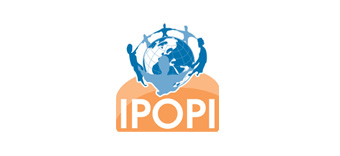December 17, 2020
IPOPI’s PID Life Index – The PID environment around the globe
IPOPI is pleased to present the PID Life Index, an index built on 6 key principles of care that measures the status of the primary immunodeficiency (PID) healthcare environment across the globe, displayed in an interactive tool.
The PID Life Index has been established with the co-operation of PID medical specialists and patient leaders from all world regions. The large set of data, provided by IPOPI member organisations and physicians, is displayed through map and data visualisation interfaces that allows users to navigate the index according to their interest. This is a first-of-its-kind care status measurement index in the rare diseases field.
With the PID Life Index, IPOPI aims at showing the status of PIDs at national, regional or global level as well as supporting advocacy initiatives.
The PID Life Index results from a long process of translating the “Principles of Care for Primary Immunodeficiencies”, published in 2014 and establishing the gold standard of care for PID, into the current political and healthcare environment.
Visit the PID Life Index
Features and functionalities of the PID Life Index
The PID Life Index presents data on each country for which the national patient organisation and/or national PID medical specialists have shared the national data through a questionnaire.
General index and 6 principles presented through map and data visualisation interfaces
Each of the principles has been built on the basis of a series of criteria that are described for each principle and that the user will be able to access. For the 6 principles, the PID Life Index provides a description & allows comparison of how a specific country performs on the principles and criteria. This in turn shows the status of PID in different countries or regions of the world in the following principles:
Availability of diagnosis is a paramount principle in diseases that remain widely mis-or undiagnosed in the world. This principle addresses the diagnosis rate as well as the availability of different diagnostics options including pre-natal and newborn screening for SCIDs.
Availability of treatment considers the availability in a country (market authorisations) of a range of medicines that address the wide range of PIDs including prophylactics, vaccination and curative treatments.
The interface offers a specific section on immunoglobulin therapy that have received marketing authorisation in the different countries.
Universal Health Coverage is related to patient access to their treatments and to what extent they have to pay for them out of pocket, ensuring that PIDs are discussed according to relevant topics in the international political agenda (United Nations, World Health Organisation).
Specialised centres for children and adults, working in a national network, are assumed to be the best model to address as complex rare conditions in their diverse dimension (diagnosis and treatment, follow-up and transitioning care). The index provides information on the extent such centers are appropriately present in a country.
The interface also provides a map/list of PID centres in the world and will be progressively completed.
National Patient Organisations can make the difference in raising awareness, providing patient and clinical education, advocating among Health authorities and voicing patients’ needs and rights. This tool helps assesses the presence and action of these organisations.
National registries allow epidemiology, research and cooperation between researchers and physicians, even more so internationally when they are interoperable. The PID Life Index assesses the existence of registries for PIDs, preferably national ones, and also of Bone marrow donors registries.
A summary sheet for each country
Describing and comparing how a specific country performs on the principles and criteria. This sheet collates all previously shared information on the country in one place. This section will allow our patients organisations to add some personalised comments as to precise the data that is provided.
A glossary
In providing a detailed glossary of the terms used throughout the Index and of relevance for PID patients, their management and care, the PID Life Index is not only aimed at educating people on important PID field topics but also at contributing to a global common understanding of the terms in use.
The PID Life Index hopes to engage users in conversations
The way a criteria is understood may differ from country to country. Differences between what is considered by law and the situation patients face in real life also exist and should be kept in mind. The principle of Universal Health Coverage offers a very good example with many patient organisations describing it as being available according to their national law. Reality can however be quite different for some of these organisations which need to spend time and resources providing legal advice to individual patients so that they can eventually access what is warranted by law.
Another example is about treatment, where availability does not always mean that a medicine is actually accessible for the patients; due to exceptional or recurrent tensions in supply or other factors.
This is just the beginning! IPOPI seeks to facilitate access to comparable principles and criteria which can serve as a basis to promote the need for equitable access to gold standard care for PID patients and stimulate discussions to allow every country to effectively pursue this objective. The PID Life Index is a living resource which will continue to evolve, this will include adding more countries in the future.
Visit the PID Life Index
For more information, comments, or to include a new country, please contact leire@ipopi.org, martine@ipopi.org



